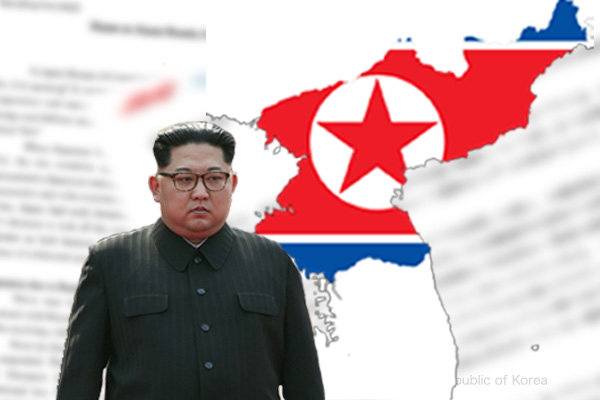Since the breakdown of February’s U.S.-North Korea summit, domestic turmoil in North Korea has grown more serious. Disappointment and discontent have been spreading among ordinary people and Korean Workers’ Party cadres who had been told that the summit would end up successful paving the way for the relaxation of economic sanctions, the resumption of trade with China, South Korean economic assistance and Japan’s compensation. What Chairman Kim Jong Un has done since then has been limited to sending a letter to activists of the party’s Propaganda and Agitation Department, urging them to endure any hardship with self-sufficiency and self-support. He has even remained unable to issue a statement to suspend U.S.-North Korea negotiations as anticipated by a North Korean vice foreign minister.
Political police shaken on failure to eliminate dissidents
Meanwhile, I have recently received a news that five senior officials of the North Korean political police, or the State Security Department, have fled away. In the morning of March 19, the five left Pyongyang for Beijing, took lunch in Sinuiju on the border with China and arrived in Dandong of China. Later, they went missing without appearing before department officials stationed in China who were there to welcome the five.
Alleging that they fled away in collusion, Pyongyang asked China’s political police, or the Ministry of State Security, to look for them. The Chinese ministry is searching them along with the general police, or the Ministry of Public Security, throughout China. The North Korean military intelligence, or the Reconnaissance General Bureau of the Korean People’s Army, has sent 20 agents to search the five along with State Security Department officials stationed in China. They have raided not only hotels or Korean restaurants but also private houses.
A flying rumor says that the State Security Department officials had been ordered to eliminate a dissident group called Cheollima Civil Defense Force and Kim Han Sol (a son of Kim Jong Un’s half-brother Kim Jong Nam who was assassinated) sheltered by the group and have fled away on concern that they could be held responsible for failing to implement the order. The dissident group declared the creation of the Free Chosun provisional government on March 1. My sources confirmed a U.S. newspaper report that Free Chosun rebels had raided the North Korean embassy in Spain. When taken together, information indicates that the State Security Department is upset due to its failure to suppress the dissidents. I cannot conclude as many reports remain unconfirmed, but I can assume the North Korean regime might have been plunging into a crisis.
Missile launchers might have relocated for firing
From March 17 to 22, mobile launchers for intermediate-range ballistic missiles are said to have been moved to North Pyongan Province near the Chinese border. Four launches each were moved to Yongcheon, Uiju, Sakchu and Kusong around midnight in a manner to avoid satellite surveillance. North Korea is said to have a plan to fire missiles by claiming the launching of satellites in April and has moved the launchers on concern that they could be bombed by the U.S. military. This information came from reliable sources inside North Korea but has not been confirmed by other sources. Kim Jong Un may have been pushed to the brink of betting on a satellite launch to hold down domestic turmoil and jab at the U. S.
Pressure on North Korea is working. That is why we should not lower our demand for North Korea to dismantle all nuclear weapons, missiles and biochemical weapons and return all Japanese abductees to Japan immediately and collectively.
Tsutomu Nishioka is a senior fellow and a Planning Committee member at the Japan Institute for National Fundamentals and a visiting professor at Reitaku University. He covers South and North Koreas.


